Southern skaters ride rising wave
Shift in perception as parents embrace growing potential in skateboarding
Once confined to back alleys and parking lots, skateboarders are shedding their troublemaker image as the hobby gains recognition as a sport.
Since its debut at the 2020 Tokyo Olympics, skateboarding has transitioned from a misunderstood activity to a family- friendly sport backed by community clubs, and with the potential for participants to earn medals at international meets including the Olympics.
ALSO READ: Teens dream of skateboarding medals for M’sia
Southern Skate Club (KSS) chairman Mohd Jihan Muda, who has been skating for over 20 years, said the change had been surreal.
“People used to see us as vandals when we used to skate on the streets,” he told StarMetro.
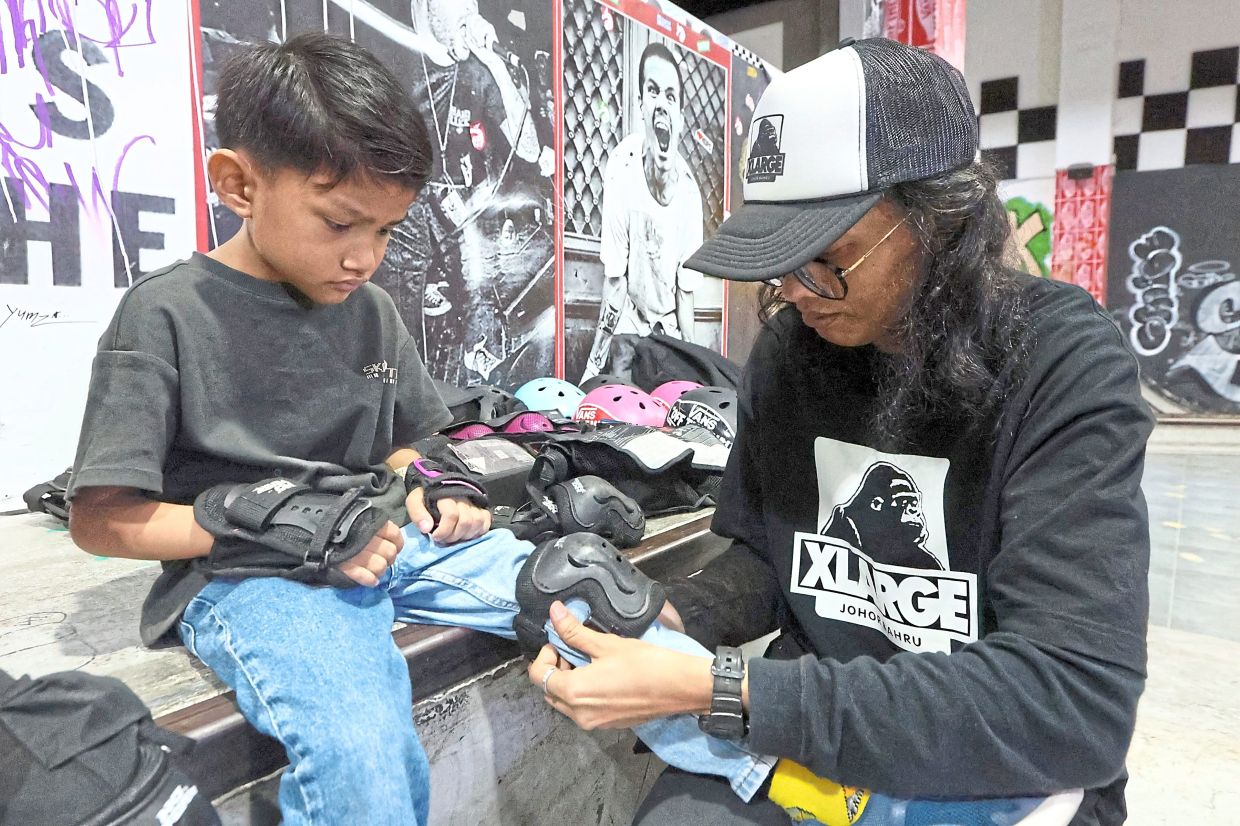
“Now, parents are calling us to enrol their children in classes. We are finally being taken seriously,” he added.
Formed in 2017, KSS started with a handful of members struggling to find proper space to train, said Jihan.
“Today, the club runs weekly group classes and private lessons across Johor Baru, including at Tunku Mahkota Ismail Youth Centre (TMIYC) – a public park.
“Now the perception has shifted and there are better facilities.
“However, despite the growing acceptance, Johor’s skateboarding scene is still facing hurdles as most skateparks do not meet international standards, which prevents skaters from mastering advanced techniques,” he said.
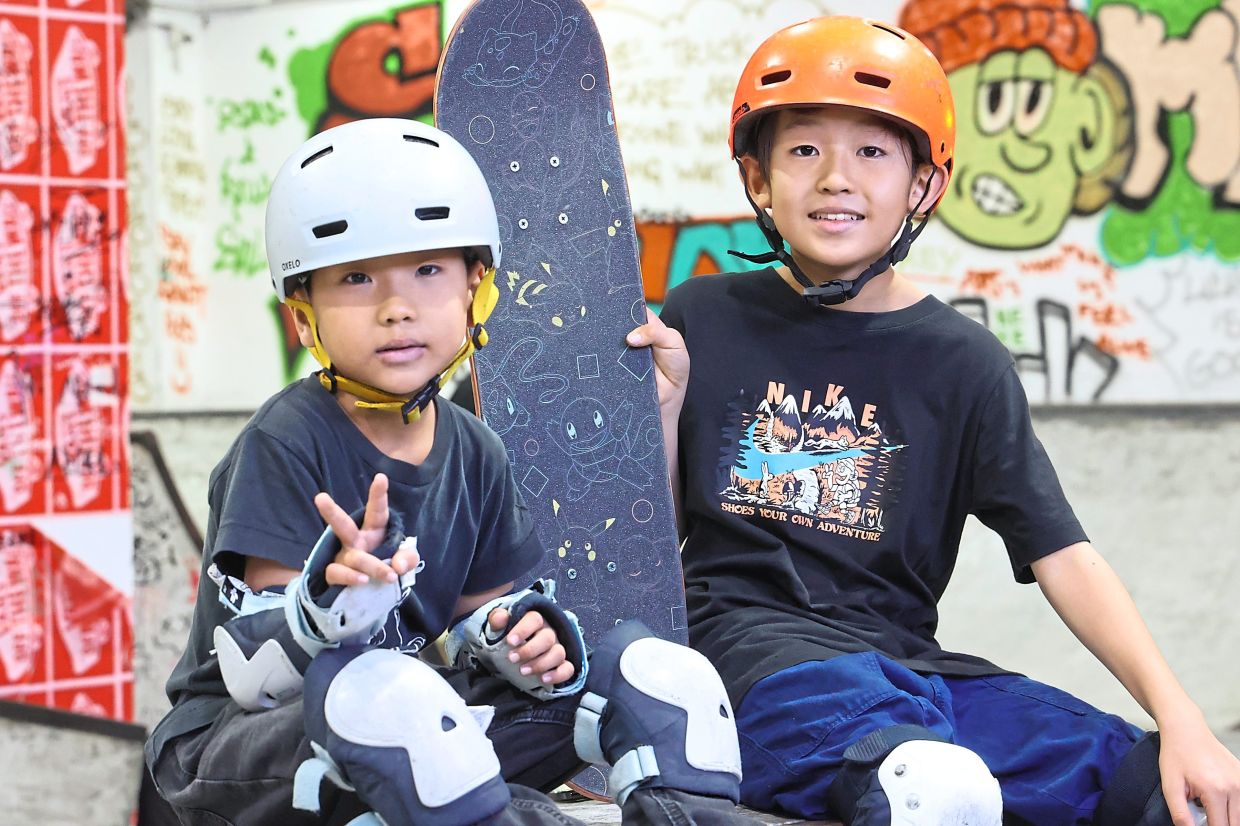
Jihan said competitions were also limited and many young skaters were struggling too with the cost of equipment, training and travel due to lack of sponsorship.
“Structured training programmes, regular competitions and world-class skateparks are crucial to taking local talent further,” he emphasised.
Similarly, non-profit group JBS4L arts and culture planner Noralwan Hakim said current support and facilities were insufficient to prepare local skaters for international competitions.
“Several young skaters from Johor are being groomed to represent Malaysia, but they rely mostly on foreign sponsorships.
“Footballers need quality fields; similarly skateboarders need proper skateparks designed by those who know the sport best,” Jihan added.
Noralwan also highlighted the importance of building high-quality skateparks that met the sport’s specific needs.
“Just like how proper football fields and training facilities help produce quality players, proper skateparks and amenities are essential to develop world-class skateboarders,” he pointed out.
“Only skateboarders themselves truly understand what is needed in a facility.
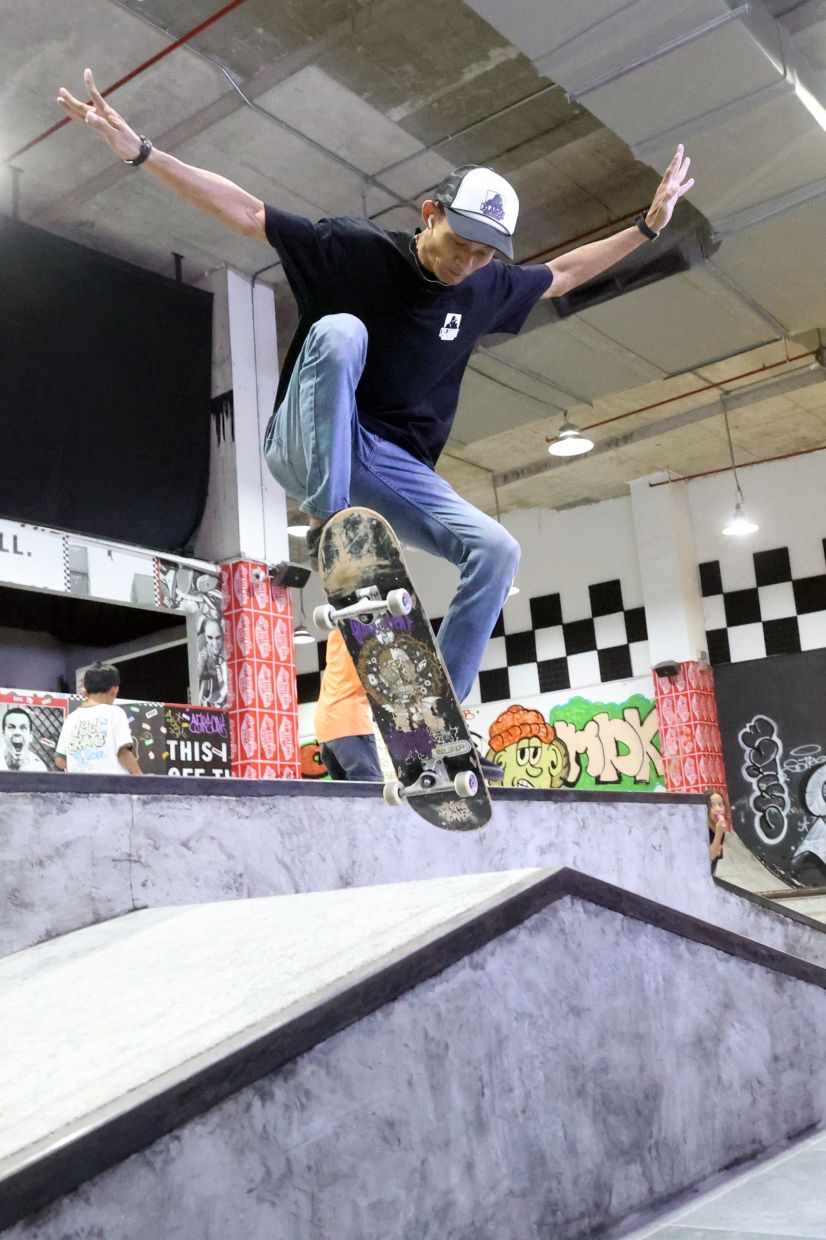
“It (skateboarding) has its own language and the facilities should be built by someone who speaks it,” said Noralwan.
Last November, Youth and Sports Minister Hannah Yeoh said the National Sports Council (NSC) would focus on developing new sports such as skateboarding, climbing and surfing as potential medal contributors in future Olympics, especially in preparation for the US’ 2028 Summer Olympics in Los Angeles.
To meet growing demand, KSS has coaching programmes, skate clinics and classes. It also works with JBFit – an academy under Johor Baru City Council.
The clinics and classes, handled by KSS coaches, are held at TMIYC.
KSS’ skate class at JBFit in the morning is free, said Jihan.
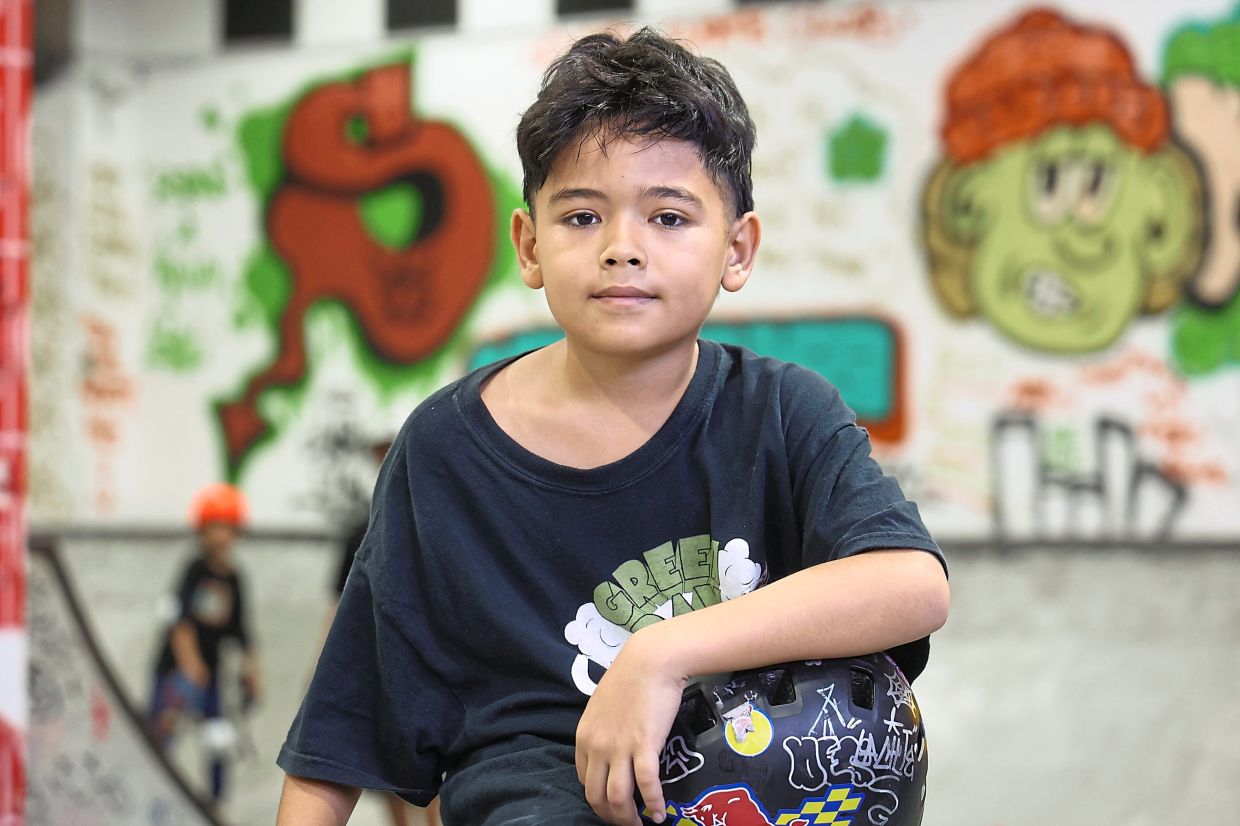
Evening classes are priced at RM30 per person. Protection gear is available for rent.
Besides this, local streetwear and skate gear retailer called Showroom also holds skate clinics, targeting students aged between five and 19.
KSS coaches also teach at the Showroom.
Students only pay a RM10 entrance fee to access free coaching.
“Last year, we had about 30 students and the number has more than doubled this year, reflecting greater acceptance from parents who want a safer and structured environment,” said Jihan.
He said while many joined for fun, skateboarding also helped build mental resilience.
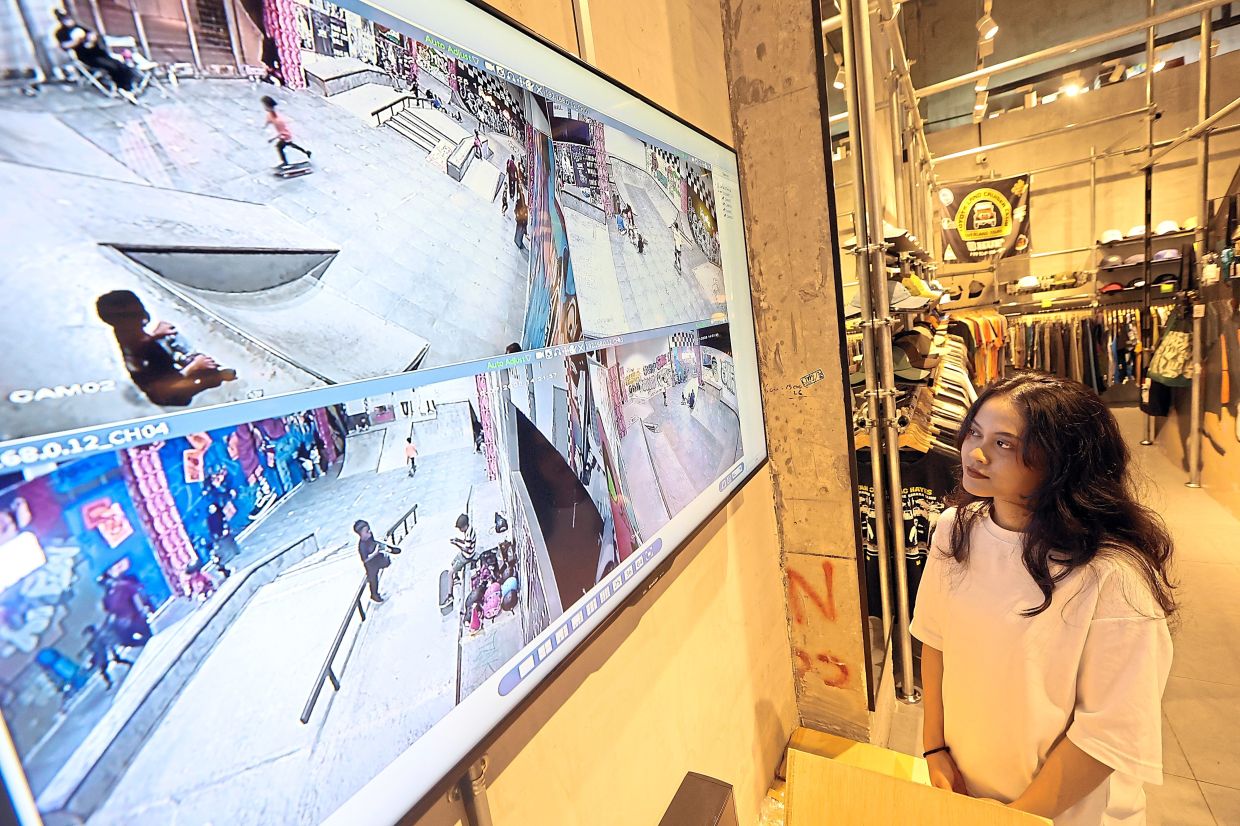
“Most beginners fear falling, so we teach them how to fall safely and overcome that fear.
“It is not just about balance but also building courage,” added Jihan.
The skateboarding clinic is also popular among expatriates’ children, like 10-year-old Waku Noda, who started attending classes at the Showroom with his younger brother.
“I started skateboarding in Japan when I was three but stopped when we moved to Kuala Lumpur, as I did not have a skateboard at the time,” said Waku.
“My parents are very supportive and expect us to learn casual tricks without straining or risking ourselves,” said the boy who has been living with his parents in Malaysia for four years.
Waku said skateboarding and surfing had different protective gear.
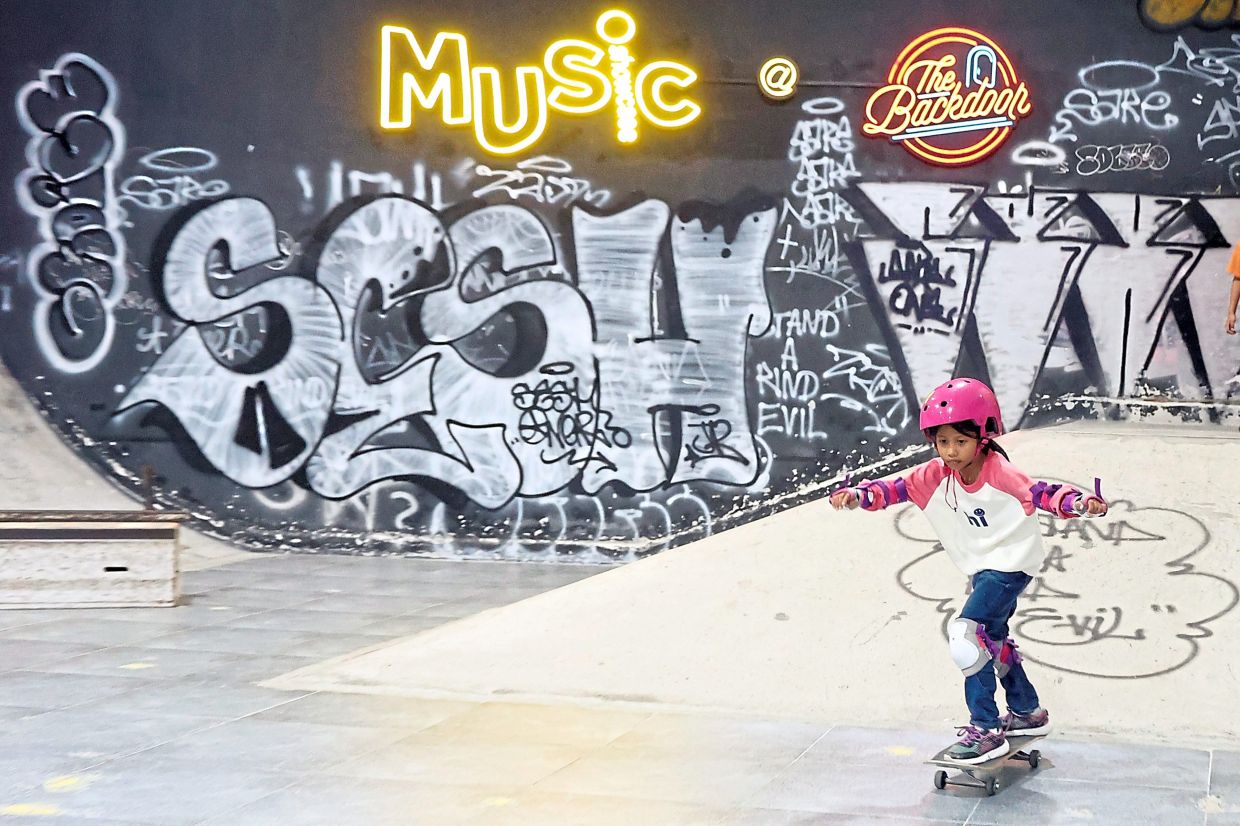
He said his parents were insistent on them wearing safety gear at all times while skateboarding.
“I also find it more comfortable and easier to learn skateboarding in Malaysia because the skateparks in Japan tend to be overcrowded,” he said.
Australian student Lachlan David Inglis, 11, said he picked up skateboarding for fun and to challenge himself.
“At first, my parents were unsure but later my mum agreed and thought that it was a good idea.
“I noticed that the skatepark had coaches, and decided to join,” said Lachlan.
He hopes the authorities can build more obstacles at skateparks and improve facilities.
Post a Comment for "Southern skaters ride rising wave"